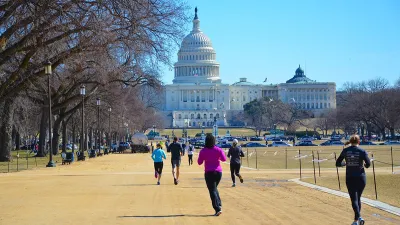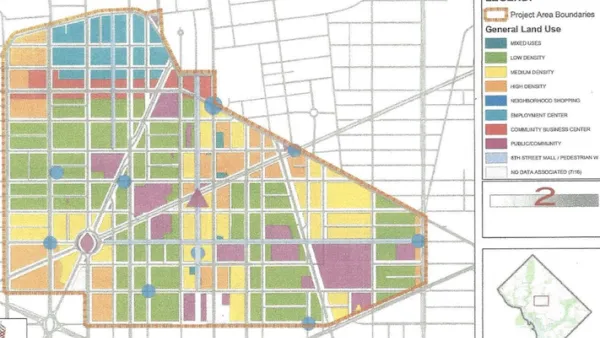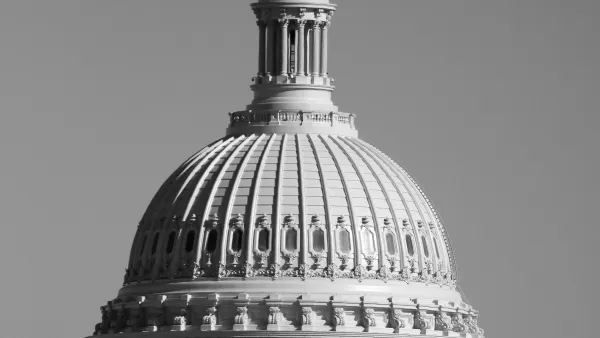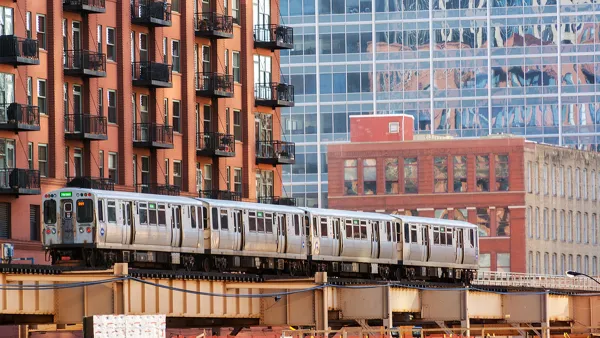A neutral capital "district" may have sounded like a fine idea in the early 1800s. Today, Washington, D.C.—the burgeoning city, not the political fabrication—is crippled by the whims of Congress and a host of anti-urban policies.

Washington, D.C.'s license plates have long complained of "taxation without representation." That pithy protest belies a complex and increasingly dire situation for the nation's capital city. On everything from gun control and marijuana decriminalization to building heights and transportation plans, The District must almost always defer to Congress. Unfortunately, Congress hates D.C. just about as much as D.C. hates Congress. Lawmakers from rural areas and others who treat D.C. as an office and not a city have often acted against its best interests.
Activists in D.C. have long called for statehood or, at least, substantial representation and autonomy. But Congress has not budged, because, "Unlike the enfranchisement of women and African-Americans last century, D.C. statehood doesn’t bring new voting constituents to any current elected official. As a result, members of Congress feel little political pressure to take action; in fact, they stand to see their power diluted by the addition of a new delegation."
While the city has grown, and gentrified, tremendously in recent years, this growth is yet another reason why the city needs serious governance and planning. Writing for Next City, Aaron Wiener makes an impassioned case for the unshackling of The District.
"It has become, at turns, a testing ground and a fiefdom for federal officials from faraway rural areas whose policy philosophies have entirely different implications at home than they do in the capital city. Time and again, the city’s ability to address its uniquely urban challenges, to grow and prosper, to fulfill the wishes of its city-dwelling residents, has been squashed by federal control."
FULL STORY: Why Urbanists Everywhere Should Be Fighting for D.C. Statehood

National Parks Layoffs Will Cause Communities to Lose Billions
Thousands of essential park workers were laid off this week, just before the busy spring break season.

Retro-silient?: America’s First “Eco-burb,” The Woodlands Turns 50
A master-planned community north of Houston offers lessons on green infrastructure and resilient design, but falls short of its founder’s lofty affordability and walkability goals.

Delivering for America Plan Will Downgrade Mail Service in at Least 49.5 Percent of Zip Codes
Republican and Democrat lawmakers criticize the plan for its disproportionate negative impact on rural communities.

Test News Post 1
This is a summary

Test News Headline 46
Test for the image on the front page.

Balancing Bombs and Butterflies: How the National Guard Protects a Rare Species
The National Guard at Fort Indiantown Gap uses GIS technology and land management strategies to balance military training with conservation efforts, ensuring the survival of the rare eastern regal fritillary butterfly.
Urban Design for Planners 1: Software Tools
This six-course series explores essential urban design concepts using open source software and equips planners with the tools they need to participate fully in the urban design process.
Planning for Universal Design
Learn the tools for implementing Universal Design in planning regulations.
EMC Planning Group, Inc.
Planetizen
Planetizen
Mpact (formerly Rail~Volution)
Great Falls Development Authority, Inc.
HUDs Office of Policy Development and Research
NYU Wagner Graduate School of Public Service





























